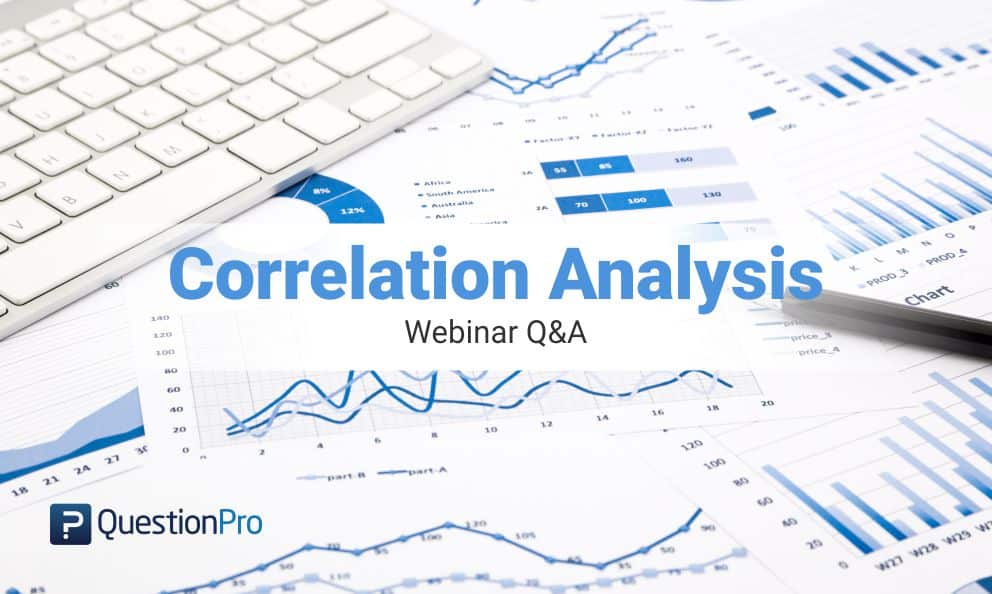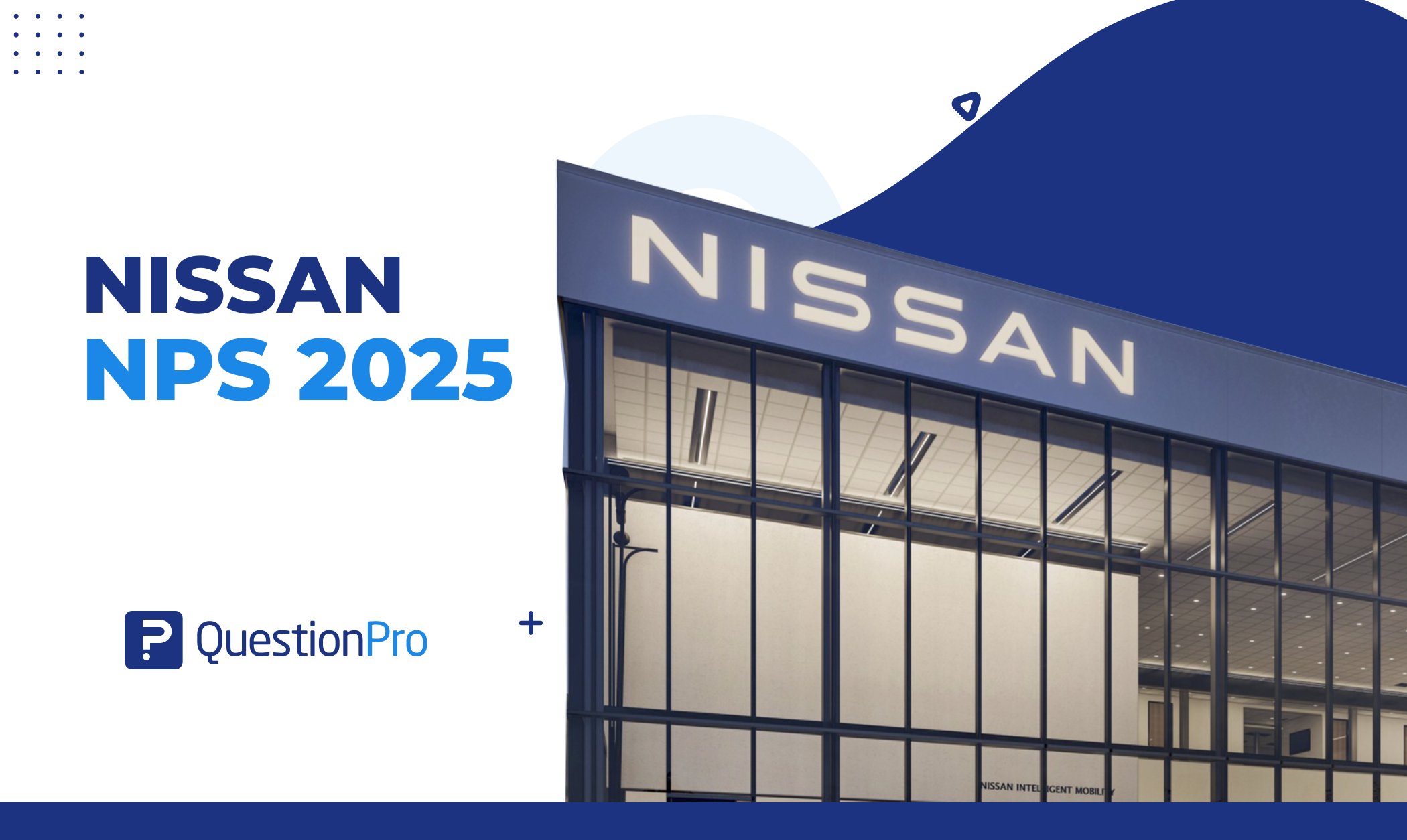
The primary objective of conducting the Correlational Research webinar was to explain this statistical analysis method with some practical examples and how it can help in boosting an existing market research strategy. In this webinar, every aspect of this subject was covered, from its definition to its pitfalls, uses, analytics, best practices and also how to set up correlational analysis using QuestionPro.
Since we received a lot of requests to discuss FAQs and conduct a quick recap, we’ll be doing just that in this blog. Click here for the webinar recording and slides.
Correlation Analysis Webinar Q&A and Recap
1. How can you calculate the correlation for numeric inputs e.g. someone’s age, years of experience, price, etc.? – Catherine
You can calculate the correlation of respondent profiles by making the profiling questions of the variables x or y in one of the mathematical methods to measure correlation (refer to slide 15 of presentation):
- Pearson Correlation Coefficient
- Spearman Rho
- Method of Least Square
From there, you can use the profiling question and compare it to years of experience and price. QuestionPro offers a simple point and click option for correlation analysis that can simply measure the strength of relationships between different questions you select from the survey.
2. Does the coefficient correlation in Pearson Correlation indicate how strong the correlation? – Samia
Yes, it uses the -1, 0, +1 to indicate the strength of the relationship. Closer to -1 is a negative relationship, and +1 is a stronger positive relationship.
3. Can we do correlation analysis for responses taken on the Likert scale? Which type of method is best to find out the correlation in Likert scale responses? – Swapnil
Yes, a correlation analysis can be done for results on a Likert scale and can be done with any closed-ended question type for that matter. For your study, you can insert the data directly into a tool such as SPSS and then use the Pearson correlation between the two total degrees of two Likert-scale and between the degrees of the dimensions.
4. How one will be understood that what test he should go for, is it T-test, chi-square test, correlation, and regression for his research?
The answer really depends on your goals and objectives for your market research study. At any point, you can use any of these analysis tools to analyze your data, but it must meet your research goals in order for it to create actionable results.
Questions should include:
- What problems are we looking to solve, what solutions are we seeking through this survey?
- What am I trying to validate through my research project?
- What questions and answers do my executive or management team want to ask?
- Which questions and potentials results are of highest priority and influence business decisions?
- Who and what is the profile and size of the sample I will be surveying?
Say you are a property management group looking to buy property to rent to people in a big city.
If you are looking for strength and direction of the relationship between 2 variables, such as total household income vs price of rent they willing to pay to live in a metropolis city, then correlation analysis can be used.
If you are looking to see the difference between the willingness to pay in higher rent between males and females, then you will want to run a T-Test. This method allows survey administrators to gather feedback and validate the results of small sample sizes that represent the larger target population.
If you want to find out if females are more willing to pay more for apartments with larger kitchens is true or not, then you can run a Chi-square test. The Chi-square test is intended to test how likely it is that an observed distribution is due to chance. It is also called a “goodness of fit” statistic.
If you are looking to answer why certain things may have happened such as, “why did people move out of my building after 6 months of living there?” then you can do a regression analysis. This methodology is the most-used to help businesses find their whys and explanations.
Each methodology has its own benefit, but I would not recommend to only use one over the other. Most market researchers will use a combination of many analysis methods. Knowing the goal and purpose of your research should be the first step before deciding which types of methods to use that will other actional results.
5. What happens when I get a number closer to zero for correlation?
This means that the relationship is not very strong. It will show if it leans positive or negative, but the relationship will be relatively weaker than a number that is closer to +1 or -1.
6. What is the difference between causation and correlation?
According to the Bureau of Statistics correlation is, “A statistical measure (expressed as a number) that describes the size and direction of a relationship between two or more variables.”
While causation “Indicates that one event is the result of the occurrence of the other event; i.e. there is a causal research relationship between the two events. This is also referred to as cause and effect.”
7. If correlation doesn’t imply causation, then what does?
The standard scientific and statistical answer to this question is that, with some caveats, we can determine causality from a well designed randomized controlled experiment. Unfortunately, causality is an area that is frequently misunderstood and it can be very difficult to determine causation between two variables because it is often impractical or impossible to do a randomized controlled experiment.







